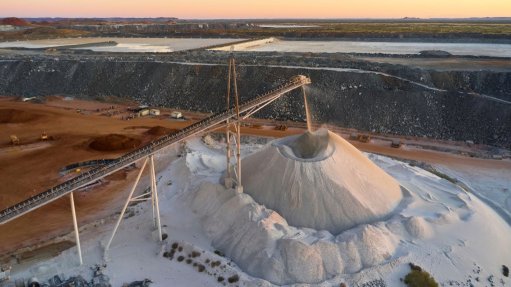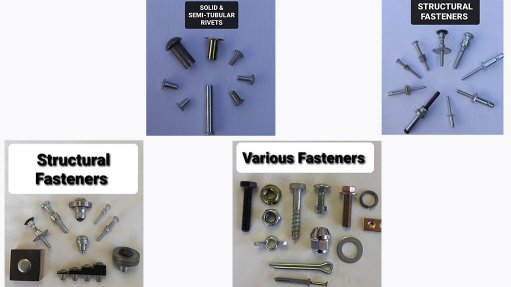Demand aggregation, pricing clarity, standardisation needed to drive hydrogen infrastructure investment
Infrastructure is needed to enable the global energy transition to meet climate goals by 2050, but commercial banks and senior debt funders are deterred from investing in hydrogen infrastructure owing to uncertainty surrounding pricing, offtake demand and stranded assets as research and development take place in this nascent industry, financial experts outlined during the 2023 Hydrogen Economy Discussion event this week.
"The world is one investment cycle away from 2050, and any assets that will not still be in use by 2050 is a concern for investors," said multilateral financial institution European Investment Bank South Africa regional representation deputy head Nadège Hopman.
This was a nascent industry and green hydrogen was not a single term. However, while it was evolving, hydrogen did present opportunities for the private sector to invest for industrialisation, said financial services firm Nedbank corporate and investment banking infrastructure, energy and telecommunications head Mike Peo.
"Green hydrogen presents significant private-sector-led opportunities, including for mining houses. South Africa has proven that it is capable of building a renewable energy market that can compete globally in terms of price.
"Given South Africa's mineral and resources endowments, green hydrogen represents similar opportunities. However, there is no well-priced market for green hydrogen currently and most commercial banks in South Africa do not fund early-stage developments," he noted.
There was some existing demand for green hydrogen in heavy industry, but banks and lenders could not yet put a pin in the price of green hydrogen as a commodity, agreed financial services and investment firm Fieldstone Private Capital Group senior banker Christine Gibson.
"Big offtakers in the corporate environment, technology partnerships and subsidisation by governments are essential to get the market moving. Aside from debt funding, substantial project funding is difficult for banks at this point in the industry's development cycle," she said.
Policy and regulatory support were important and there should be consideration for developing a global pricing mechanism or even regional pricing mechanisms to create a degree of centrality and neutrality in terms of pricing, which could support banks funding senior debt components of projects, she added.
Big commodity trading houses, environmental, social and governance, and green hydrogen funds should help create a market and offtake agreements to create certainty around debt and equity. Currently, to make transactions bankable, there must be offtake, creditworthiness and price certainty, she said.
Policy frameworks surrounding projects were country-specific, and countries should look at using a mixture of taxes and incentives, while elements such as roadmaps, strategies and guidelines helped to foster implementation, Hopman advised.
Peo concurred, highlighting that there was no investment template that banks could use to invest in green hydrogen infrastructure, necessitating a case-by-case approach to deals, but investors had to take the industry seriously or risk losing out.
Industrial gases and chemicals company Air Products had signed an $8.4-billion deal and a 30-year offtake and pricing agreement with Saudi Arabia public investment fund NEOM Green Hydrogen Company to produce green hydrogen and distribute the products globally for use in buses and trains, as well as to ship ammonia that would be reconverted into hydrogen for transportation applications, he highlighted.
"The minute offtakers are present, bankers can take a firmer view of the projects and start to fund projects," he said.
However, while banks would find it difficult to invest in early-stage green hydrogen projects, they could finance some of the infrastructure needed to ensure that supply can meet demand, noted Hopman.
"The general sentiments holding back market development include concerns that if there is no demand, then there is no need to build, for example, port infrastructure, while potential suppliers see the lack of infrastructure to enable supply to reach demand as a barrier," she illustrated.
"It is about ensuring we build trust into the ecosystem on all sides of demand and supply. We are not saying that we need to develop the final infrastructure required to export or receive everything that is produced, but rather that the green hydrogen that is exported finds a landing in the export market."
Similarly, consideration should be given to other common-use infrastructure, such as pipelines, as well as standardisation, at least within regions, to help build trust, she suggested.
Standardisation and clear definitions are important for the industry and investors to speak the same language and enable the industry to trade.
Further, the implementation of energy efficiency measures and the electrification of energy systems with green electricity must precede the use of green hydrogen and its derivatives in hard-to-abate sectors, noted Hopman.
"However, green hydrogen and its derivatives can provide energy security and electricity supply with a lesser exposure to price volatility, and green hydrogen projects can also serve to support, for example, water desalination to provide potable water to local communities, or increase food security in countries by being used to produce fertiliser," she added.
These benefits could be side-effects of reindustrialisation and building a green hydrogen industry, as well as to ensure that South Africa used its renewable energy resources as much as was possible, such as by producing green steel and eventually finished green cars, she illustrated.
"There are lots of opportunities for hydrogen and power-to-X along many different value chains," Hopman noted.
Article Enquiry
Email Article
Save Article
Feedback
To advertise email advertising@creamermedia.co.za or click here
Press Office
Announcements
What's On
Subscribe to improve your user experience...
Option 1 (equivalent of R125 a month):
Receive a weekly copy of Creamer Media's Engineering News & Mining Weekly magazine
(print copy for those in South Africa and e-magazine for those outside of South Africa)
Receive daily email newsletters
Access to full search results
Access archive of magazine back copies
Access to Projects in Progress
Access to ONE Research Report of your choice in PDF format
Option 2 (equivalent of R375 a month):
All benefits from Option 1
PLUS
Access to Creamer Media's Research Channel Africa for ALL Research Reports, in PDF format, on various industrial and mining sectors
including Electricity; Water; Energy Transition; Hydrogen; Roads, Rail and Ports; Coal; Gold; Platinum; Battery Metals; etc.
Already a subscriber?
Forgotten your password?
Receive weekly copy of Creamer Media's Engineering News & Mining Weekly magazine (print copy for those in South Africa and e-magazine for those outside of South Africa)
➕
Recieve daily email newsletters
➕
Access to full search results
➕
Access archive of magazine back copies
➕
Access to Projects in Progress
➕
Access to ONE Research Report of your choice in PDF format
RESEARCH CHANNEL AFRICA
R4500 (equivalent of R375 a month)
SUBSCRIBEAll benefits from Option 1
➕
Access to Creamer Media's Research Channel Africa for ALL Research Reports on various industrial and mining sectors, in PDF format, including on:
Electricity
➕
Water
➕
Energy Transition
➕
Hydrogen
➕
Roads, Rail and Ports
➕
Coal
➕
Gold
➕
Platinum
➕
Battery Metals
➕
etc.
Receive all benefits from Option 1 or Option 2 delivered to numerous people at your company
➕
Multiple User names and Passwords for simultaneous log-ins
➕
Intranet integration access to all in your organisation


















